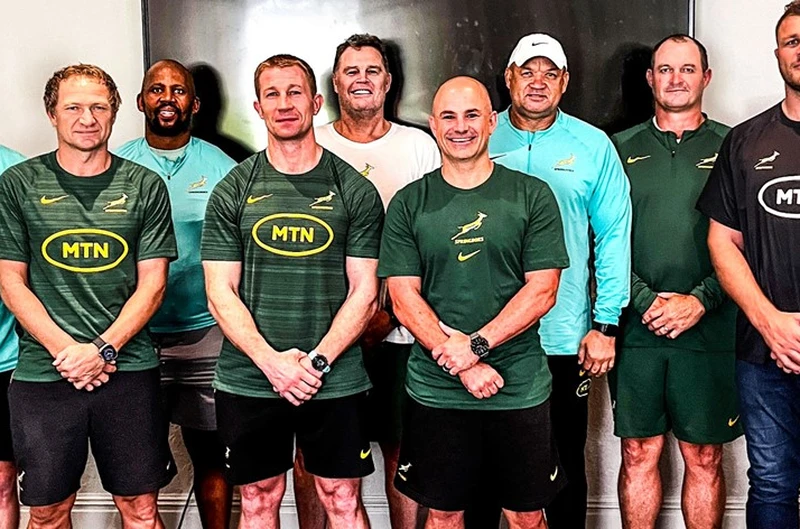Rassie Erasmus has returned to the helm of South Africa's national rugby team, the Springboks, as they aim to defend their World Cup title in 2027. To achieve this, he introduced fresh coaching expertise to foster the evolution of the attack.
New coach brings evolution to Springbok attack
Tony Brown (New Zealand) and Gerry Flannery (Ireland) have joined the Springbok coaching staff. Brown, known for his creativity, will focus on revamping the team's offense. His goal is to maximize the Boks' attacking potential while maintaining their famous defensive prowess.
Meanwhile, Flannery will ensure the Springboks' trademark defensive solidity remains the cornerstone of their game.
“For the next four years[in the run-up to the World Cup]we will be working almost with a clean slate,” Erasmus said. “We can't do things exactly the same way…We're all trying to perfect the game between offense and defense.”
The road to 2027: Evolving for success
The Springboks have a packed international schedule ahead of the next World Cup. This year they will open the season against Wales, Ireland and Portugal. Two much-awaited home tests against the All Blacks then await during the Rugby Championship. These matches will be the first major tests for the new Boks.
To support the team's evolution, the coaching staff has been expanded with the addition of expertise, including Jaco Peiper (Legal Advisor), Sebastian Prim (Sports Scientist) and Paddy Sullivan (Performance Analyst). The team is determined to build on past glories and become the first nation to lift Webb Ellis's Cup for the third time in a row.
Erasmus talks about the evolution of coaching
“We came to the conclusion that we have to improve, and for that we have to change some things,” Erasmus explained. “Tony is creative and has executable plans. True rugby solutions to things.”
Erasmus expressed confidence in the new coach and the exciting direction the Springboks are taking. If everything goes according to plan, the team can expect a new level of performance on the international stage.
Click here to read more articles by Luke Menezes

